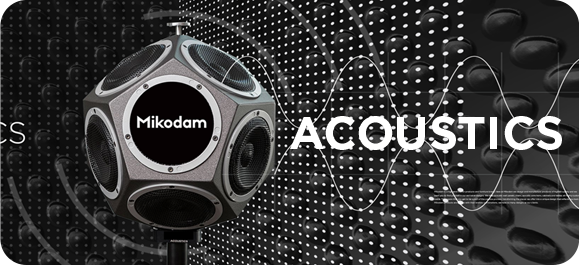
FOUNDER'S STORY
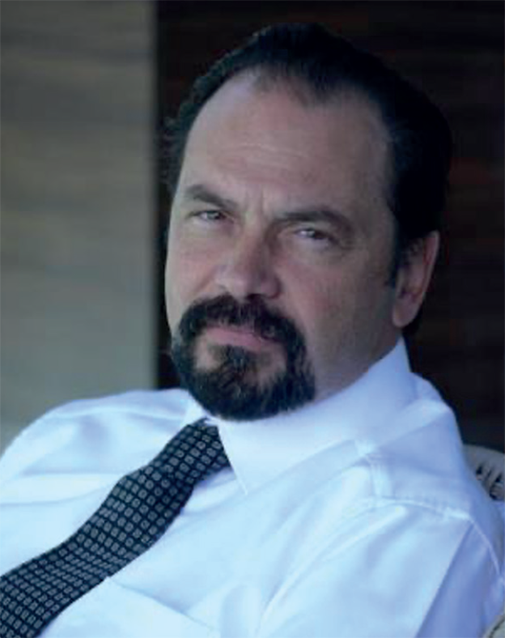
Melih GUN, born in 1964, is the son of Sengül and Yılmaz GUN, both of whom had technical art educations. Yılmaz GUN was a well-known craftsman in the home furniture industry, producing to high quality standards. Melih was raised in an innovative, nourishing environment where he learned the art of furniture through direct experience.
As a child, Melih enjoyed making model planes, cars, puzzles and drawings, probably as a result of his father’s profession. He spent most of his childhood holidays in the workshop, learning about materials and manufacturing, which to him was like a game. He was blessed with chances only a few children get; he had the opportunity to cut, assemble and paint his toys, sleds, gadgets... He had the chance to translate his childhood imaginations into material entities; such freedom to think and create allows a person the ability to decide what he wants. He graduated from TED Ankara College in 1981. Curiosity and interest are the most important elements that enable people to learn. For Melih choosing industrial design in METU was a natural and easy decision. Having grown around real-life applications of what he was studying helped Melih to be successful, understanding and internalizing his education in a fast and fruitful way.

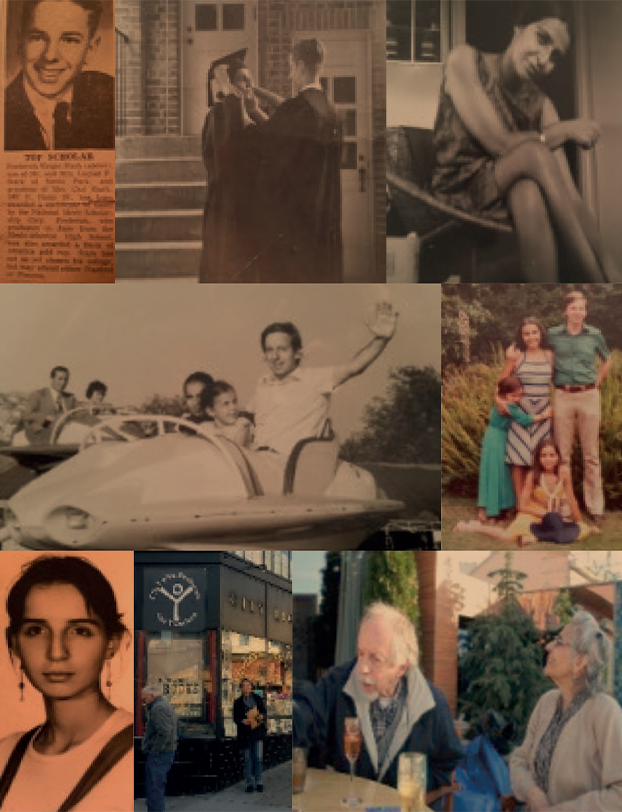
Ceren STARK is the daughter of Fred and Tözün STARK who had met in Pomona College and later built their life around literature, art, and culture within a community of intellectuals. Melih and Ceren met at METU where she also studied industrial design.
Ceren went to French School Charles de Gaulle in Ankara. In college she first started studying Spanish philology in France and moved onto METU after deciding to study design, finishing the school in 1986 as the top ranking student. When Melih and Ceren met they had an instant connection, intellectually and sentimentally. They spent many hours in the furniture store, creating designs of their own.
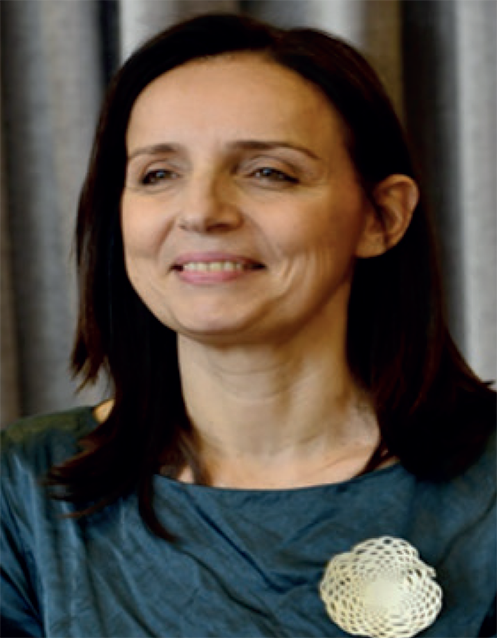
In 1975, Melih’s father turned the family business GÜN FURNITURE into a prestigious furniture store by closing the production workshops and transferring the production to subcontractor workshops. Between 1981 and 1985, during their college years, Melih and Ceren worked part time in this store. They both graduated from the Faculty of Architecture - Department of Industrial Design with high honors and continued to work together after their graduation, bringing a fresh perspective to the home furniture business with new designs.

Melih served his military duty between 1985 and 1987 in his hometown Ankara, which allowed him to continue the business and get married to Ceren in 1986. Between 1987 and 1993 they were in charge of the family business and throughout this period they came a long way in the boutique luxury home furnishing sector. They expanded the business, added new offices and display floors to the store and carried out new designs.

Their family grew with the birth of their two daughters. Beril was born in November 1989 and İdil in October 1991, both in Washington DC. Beril studied law; İdil studied mechanical engineering and mastered in computer science. The GUN family loves to be in nature; they are a venturesome family with hobbies such as skiing, motorbiking, and sailing.
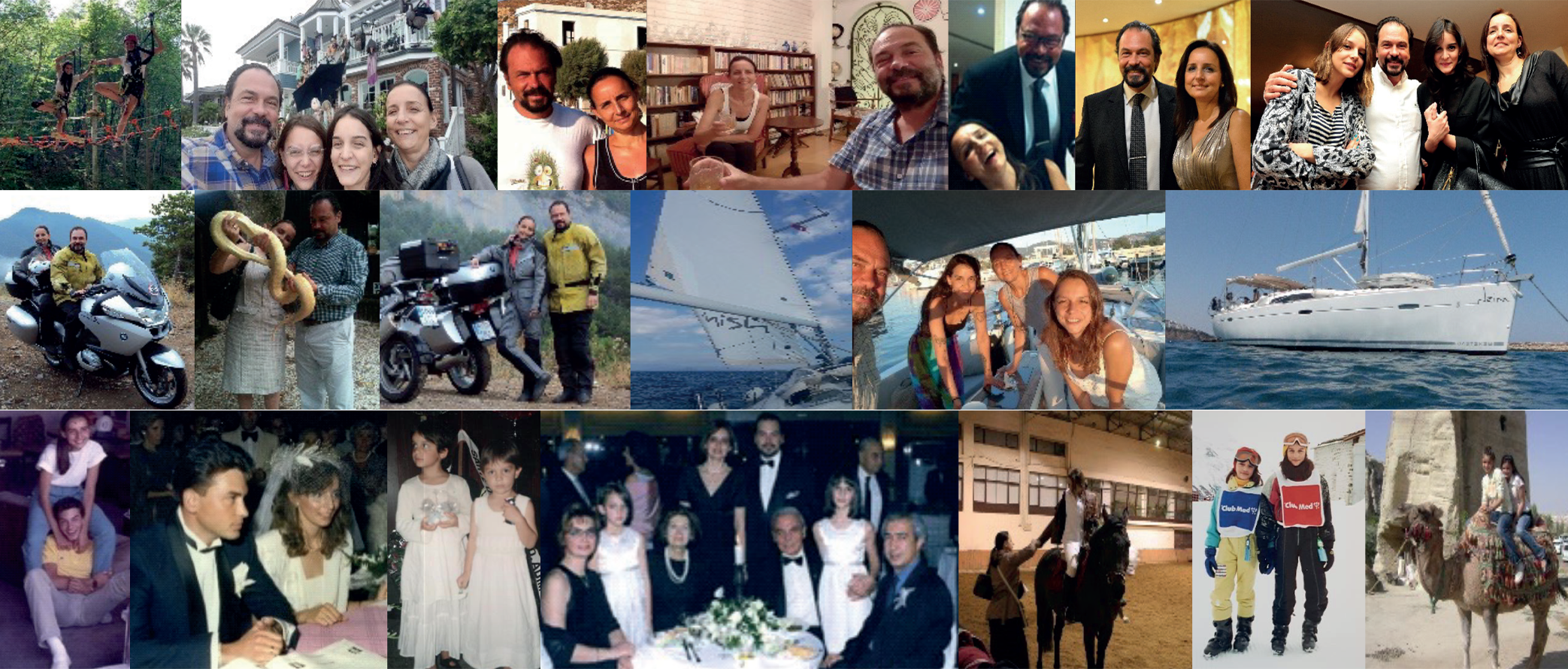
PROFESSIONAL SOCIAL RESPONSIBILITY PROJECTS
Melih, as a part of the Industrial Deisgners’ Society of Turkey (ETMK), is among the founders of non-governmental organizations in the furniture industry, such as OMSİAD (Office Furniture Industry and Businessmen Association) and MUDER (Kitchen and Bathroom Furniture Industrialists and Importers Association). Mindful towards his social responsibilities, he took on various duties in organizations such as TÜGİAD (Young Businessmen Association of Turkey), Ankara Chamber of Industry, Turkish Exporters Assembly, and Central Anatolian Exporters’ Union. He has also taken part in the commissions of various furniture design competitions, been a part of many school presentations that enlighten the young generations about the sector, and has carried out important appointments for the overall development of the sector.


STUDENT PROJECTS
Melih and his team support student’s graduation projects in all steps such from design processes to detail solutions, mock-ups to production, within the framework of university-industry cooperation.
As sponsors, they contribute to the fact that the projects developed with these events are instructive, promoting the profession and encouraging creativity for all audiences.

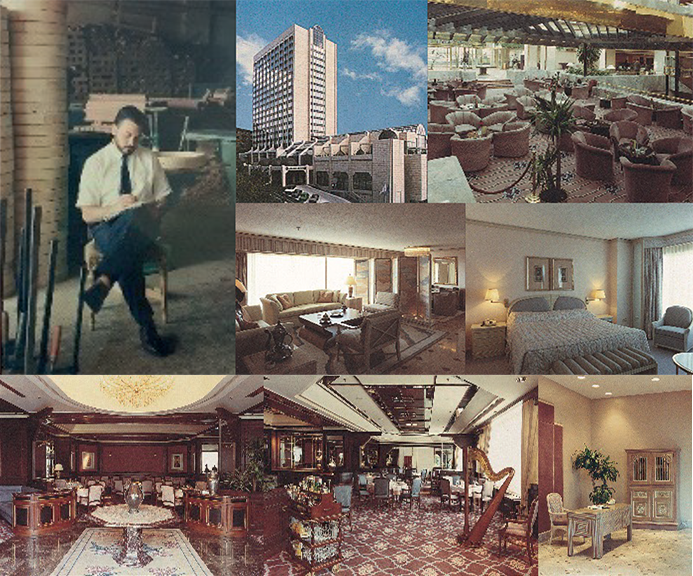
1987, when Melih had just started his business, was a time when new and luxury hotels were being built. For instance, Ankara Hilton’s construction and purchases were being made under the management of a Swiss team. Melih and Ceren, being multi-lingual, having a design education, having a background in high-quality manufacturing, and having interdisciplinary experiences opened the doors to such jobs.
During the Ankara Hilton project, the only manufacturing facility they had was a polishing workshop which they had opened a year ago. This led to a challenging period. All products for contract production were first drawn, prototypes were manufactured in subcontractor workshops, moved on to the approval stages and finally the products were stored in various warehouses. It seemed that they needed a bigger area with workshops of their own.

By 1987, school and military service were over; Ceren and Melih were married and ambitious about work. They were young and excited.
They were designing new models, attending fairs; besides manufacturing and selling home furniture they were also taking on hotel projects growing their company. Between 1989 and 1994 contract projects continuously grew in number, with few competitors in the market. Business was good and their turnover kept increasing.

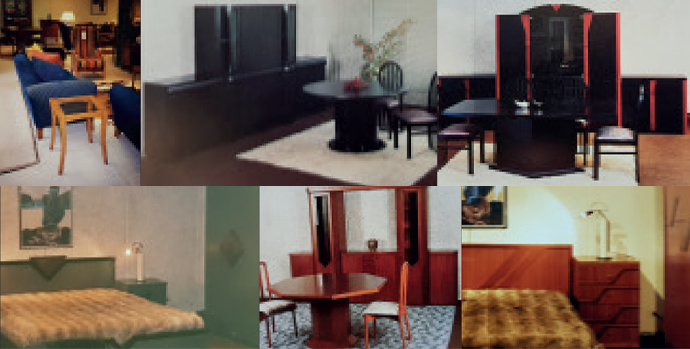

Due to the challenges of working with subcontractors and the limited spaces warehouses offered, Melih convinced his family and rented a 2000 sqm workshop with furniture, metal, and furnishing areas, that would operate between 1989 and 1994. In 1991, they expanded their work to İstanbul with GünProta Co. Ltd.



The fact that they were offering designs and detail solutions for the complete project created a great market opportunity. In 1993. they started turnkey projects under their new company Argeta. Their high quality and fast design solutions created a demand for them to undertake construction works as well. They completed many design&build type projects. Working with construction projects created the base and confidence for the idea of building their own factory.
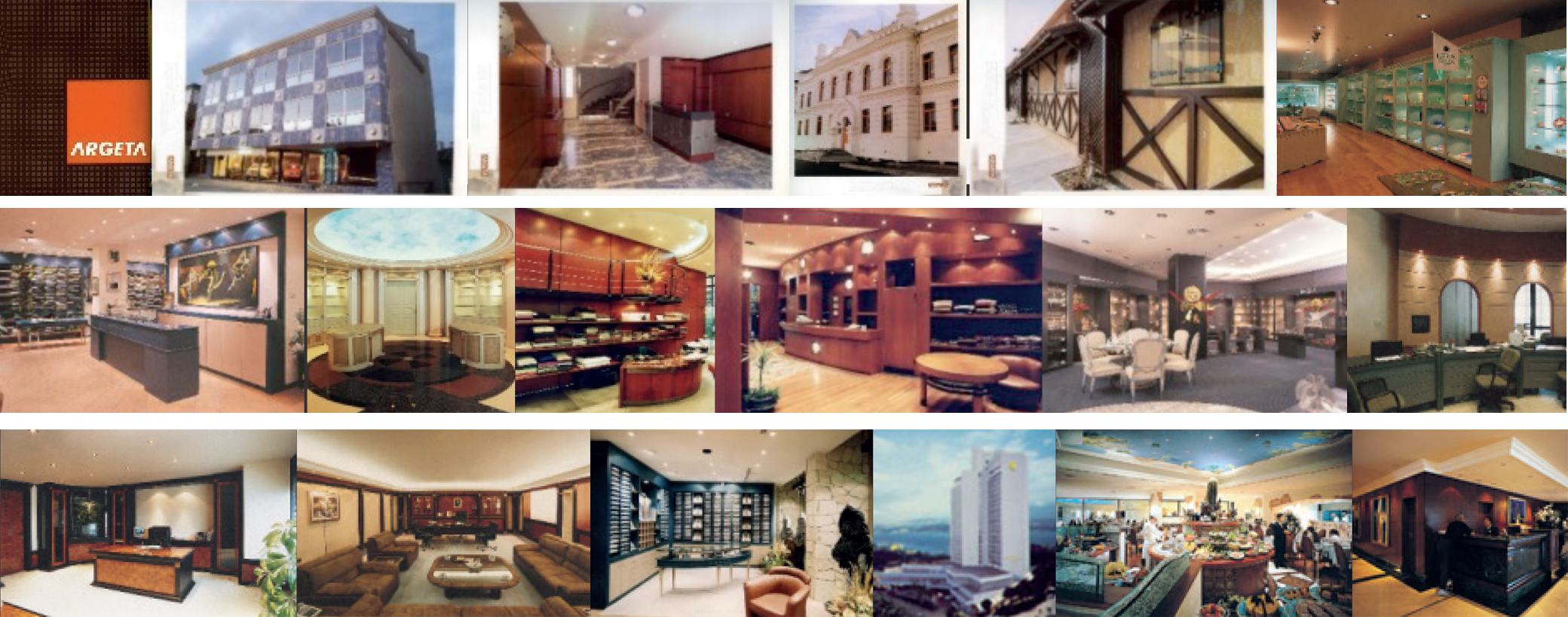
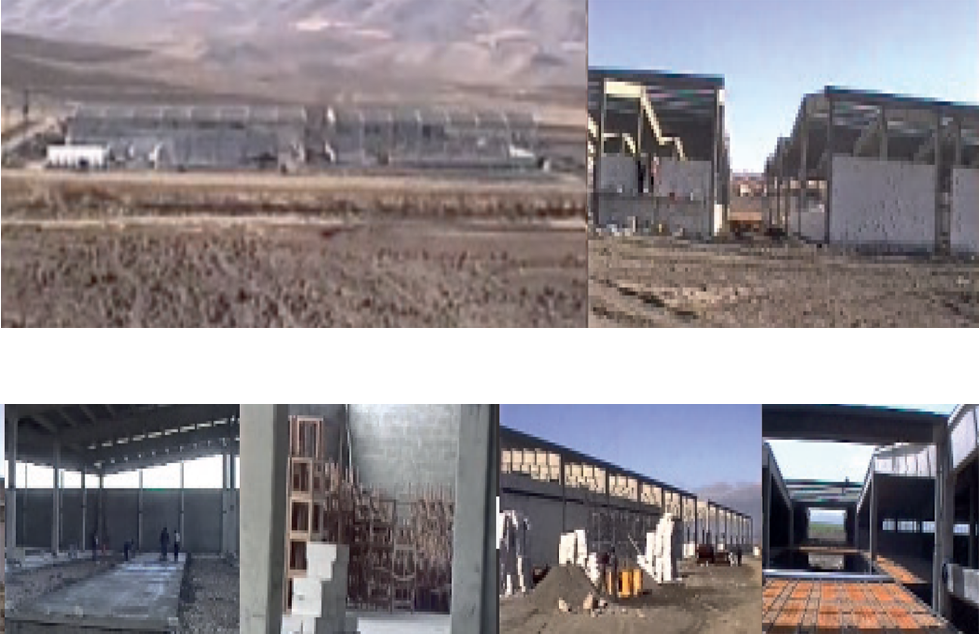
Melih’s parents believed production to be risky for business and were not content with the new branched structure. The new generation’s different way of doing business, contract works, and their desire to produce contradicted the Gün Furniture brand, which sold prestigious home furniture while handling manufacturing via subcontractors. These factors led to divergence in the perspectives and future plans of the parties.
Around the end of 1993 and the beginning of 1994 Melih and Ceren decided to grow their business that had operated at a workshop since 1989 and build their own factory under their own and new brand IKOOR. This marked the date when their business was separated from the family’s transforming into something new and exciting, enriched by the cultural inheritance of the family business. They bought the land, and started the construction with loans and exchanges within their network of contractors and craftsmen.
In 1994, Melih established Pronet in Moscow with three other partners selling building materials, and undertaking renovation and turnkey projects. The market in Russia was growing and Melih wanted to use his extensive know-how from Günofi, Günprota, and Argeta in this developing market. However there were problems within the newly established Russian system while the market in Turkey was prospering. Pronet was closed out in 1998 and the focus was once again the Turkish market.

IKOOR started its operation in 1994, in its factory in Akyurt with 12.000 sqm closed area and computer-controlled machines focusing on contract projects, and producing kitchen, office and home furniture. They grew into a successful team, offering creative production solutions.
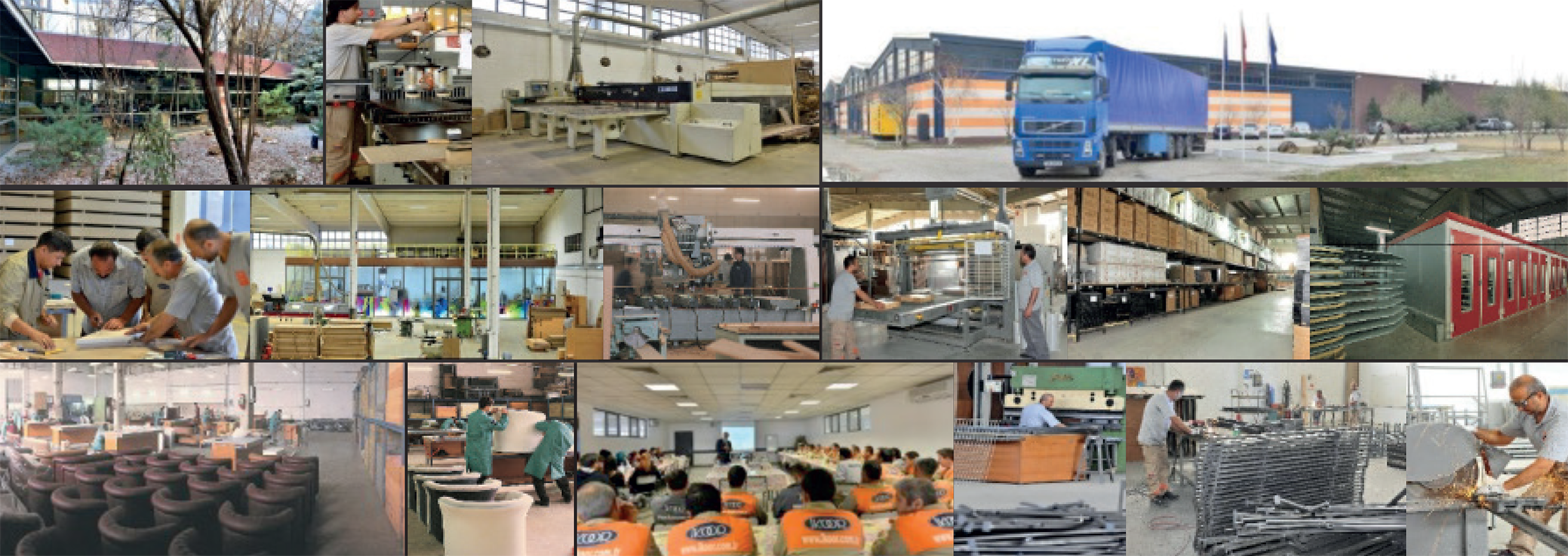
IKOOR initially flourished in the office furniture market and in 1995-96 the kitchen industry got their attention. It was a time when business was accelerating.
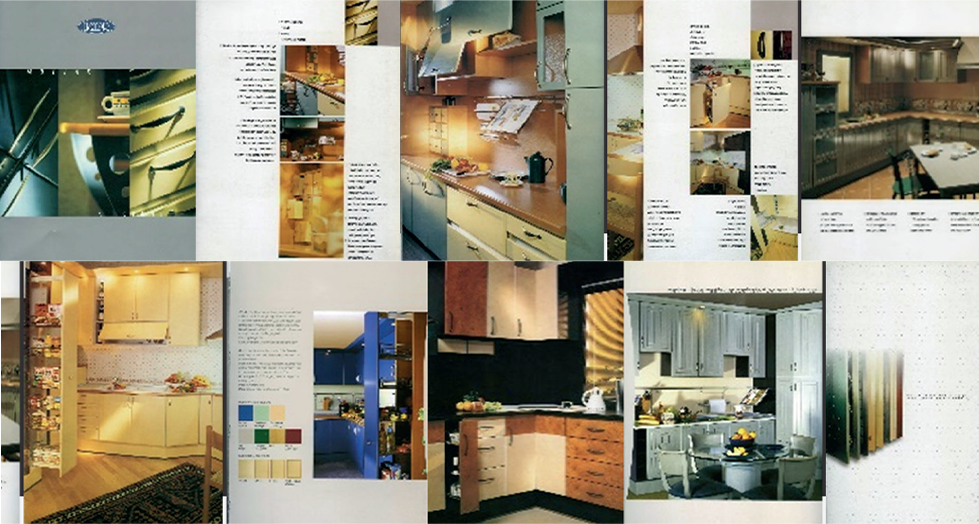
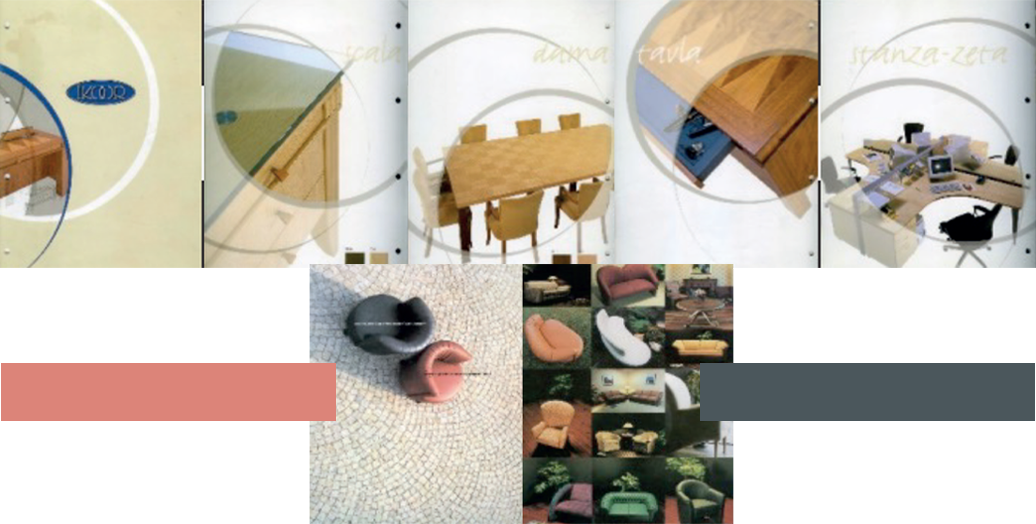
The company continued its steady growth until 1997. After their separation from Gun Furniture they had stopped doing residential works. During this period they attended qualified expositions, gave office and kitchen dealerships and had up to 16 dealers, and climbed to a prestigious position raising great interest with their brand new products.

On the other hand, the construction market in Turkey was also growing. Between 1998 and 2001 ARGETA took on projects for TURKCELL in different cities such as Ankara, İstanbul, and Balıkesir, completing various buildings for them such as powerhouses and call centers.

2001 marks the peak of an important economical crisis in Turkey, leading Melih and Ceren to the idea of establishing a company in China. Thus it would be possible bring together the design and production opportunities they had in Turkey with China’s production capacity. CDF (Contract Design Factory) was established in 2003, in Hong Kong, operating for a decade. During this period they tried to establish a hybrid structure that would eventually open to the American market.

In 2005 Sanset IKOOR was established conducting both production and product. They completed several large turnkey hotel projects such as Mercure Hotels, Merit Hotels, and Accor Novotel and Ibısh hotels.

Heydar AlIyev Center AudItorIum 2009-2011
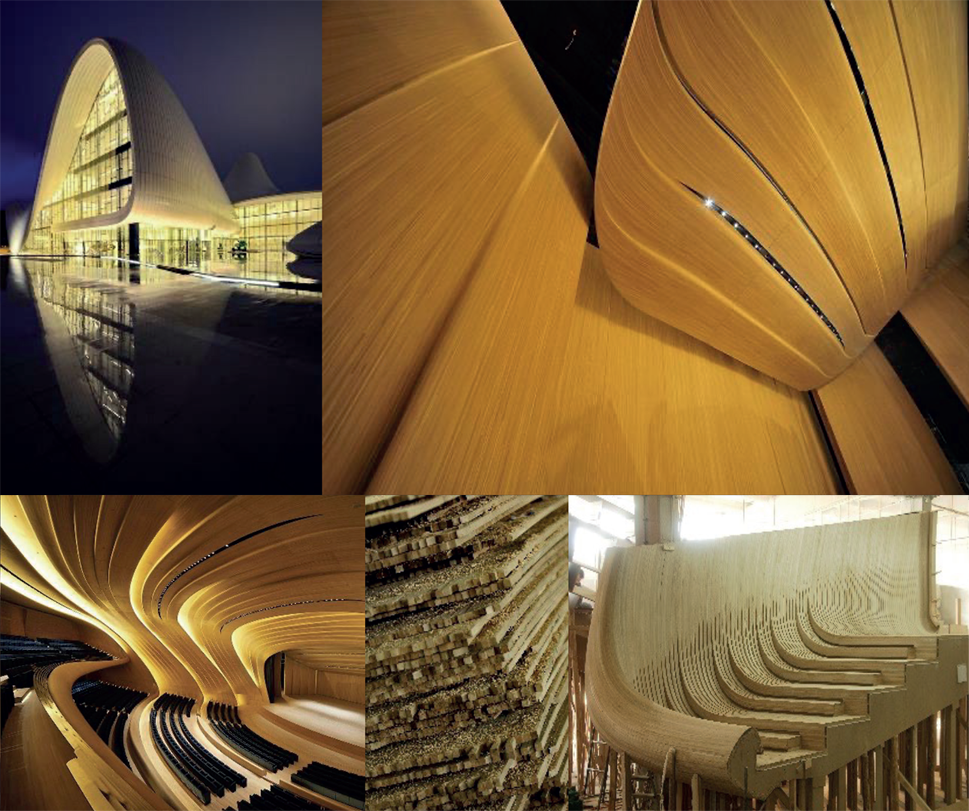
In 2009, IKOOR signed on a highly prestigious project. Heydar Aliyev Centre, a masterpiece by Zaha Hadid Architects, was being built in Baku, Azerbeijan flourishing in the fields of parametric designs and organic structures at the time. This extraordinary building is known for its flowing, wave-like design; not a single straight line can be detected in this futuristic structure. IKOOR was one of the manufacturers in this remarkable parametric structural design. The concert hall is entirely cladded with wood, manufactured by IKOOR using a special patented technique to achieve the rhythmic curves. The manufacturing of the entire interior shell also meant that IKOOR was responsible for the acoustic design.
They worked with a team of consultants and professionals on these matters, providing solutions manufacturing and applying the acoustical layers, the metal ceiling structure and the interior wooden wall claddings, mastering the engineering and logic behind these curved acoustic surfaces.

Many projects followed the Heydar Aliyev Auditorium’s footsteps in this geography and IKOOR took part in design and manufacturing quite a few of them, namely Zagulba Flame Towers 2012-14 Flame Towers (in Baku), Awaza Convention Center and Ashgabat International Airport (in Turkemnistan), and Astana Expo Center (in Kazakhstan).
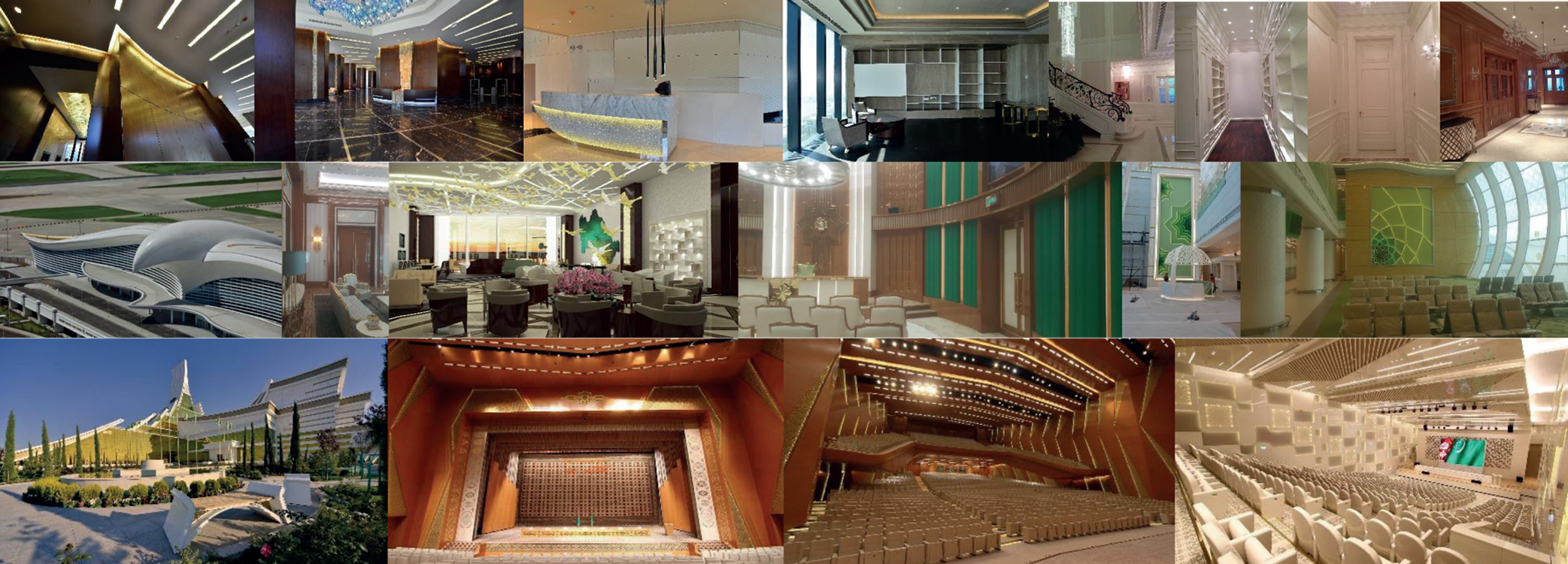
ASANTEPARK Project - 2014
Meanwhile, Melih and Ceren developed other projects that envisioned better work environments. ASANTEPARK was one of these projects; taking intelligence, art and technology as its main motives. ASANTEPARK set off with the aim to create together a participative and active “working ecosystem” where pleasure and business are balanced.
Its purpose was to bring together young people in the fields of design and contracting who have different abilities, realizing their strong sides while improving the weaker parts, leading them to transform this collaboration into a sustainable ecosystem on an instructive, web-based business partnership platform.
ASANTEPARK is a business model built with the vision of a social lifestyle. It aspires to cultivate enthusiastic, open to learning, participative, qualified, creative, productive and consistent entrepreneurs who have the ability to generate income. ASANTEPARK is a new generation business and lifestyle model where participants benefit from shared services, receive education, engage in social activities, live, work, share and generate income on a web-based cloud platform.
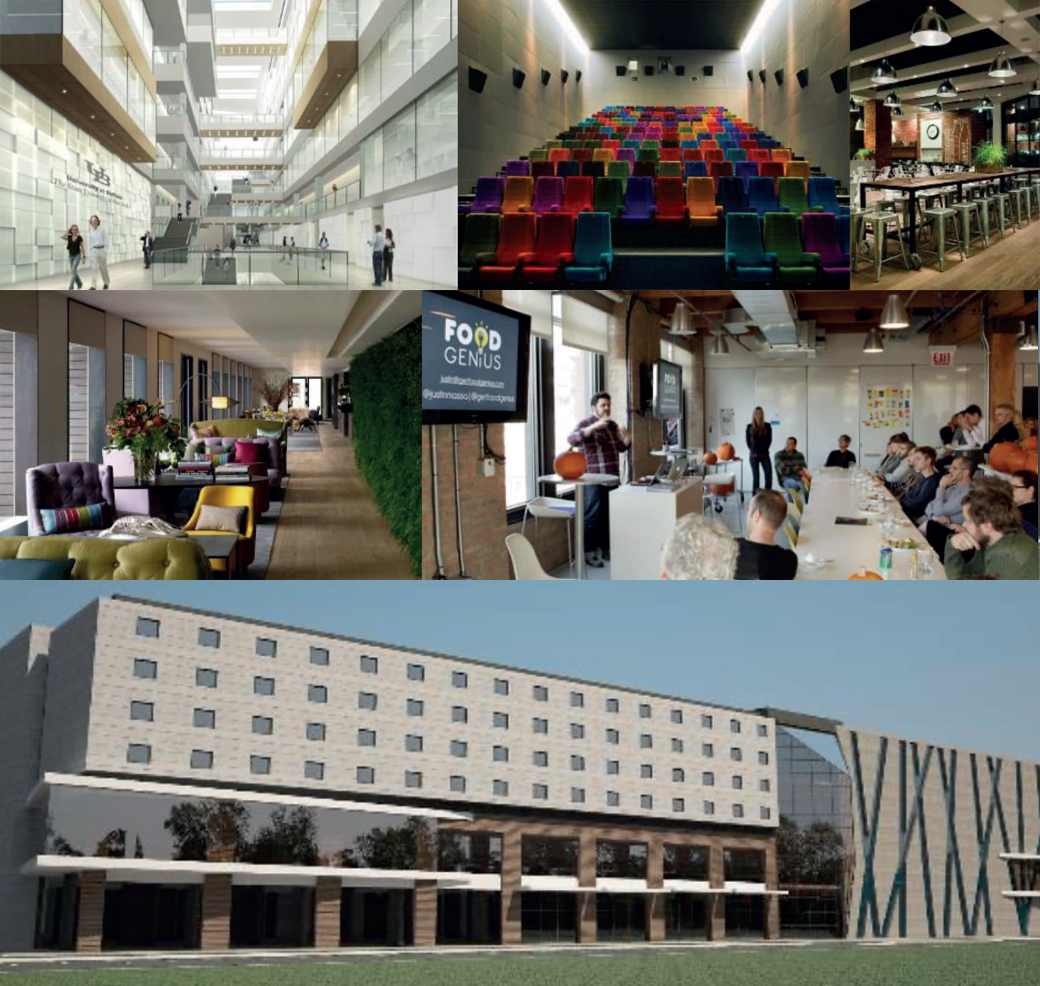

PROFESSIONAL SOCIAL RESPONSIBILITY PROJECTS
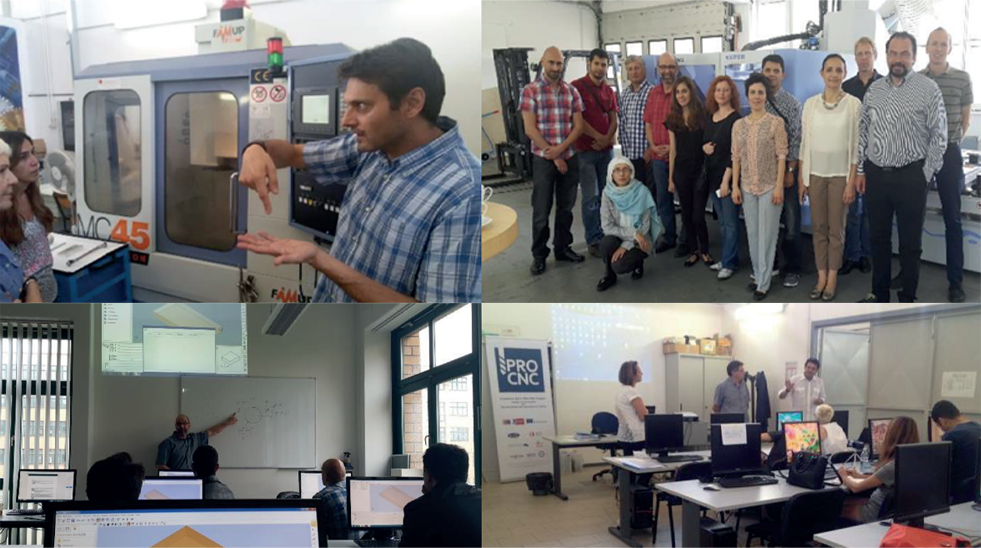
2014-16 PRO-CNC-SP Project
PRO-CNC is a project that aims to raise professionals for using CNC machines efficiently with a deep knowledge and a strengthened sense of problem solving while proposing to renew the curriculums in hand adapting them to future expectations. Within the scope of the project, it is aimed to do an analysis to determine the current situation of the sector in Turkey and the training needs of CNC operators by reviewing the current practices in the European Union. CNC education targets to develop digital skills up to the intermediate level that enable digital literacy learners to be a part of the operating community in Information and Communication Technologies (ICT) professions. It develops their skills by accessing the information they need, problem solving and sharing. These skills are also accepted as basic skills in digital economies where productivity, creativity and sustainability are discussed at the ICT level.

Expos Attended in 2016
POINT - FALL 2016/USA
INDEX DESIGN SERIES – SPRING 2016 DUBAI/UAE
TURKEY INNOVATION WEEK - 2016


Sanset-Ikoor, that had been doing turn key construction projects since its establishment in 2005, and Argeta merged in 2016, forming Mikodam, a company established by Melih and Ceren, aiming to focus on the retail market with ready-made products, translating their extensive custom production experience into luxury finished products, and creating a luxury interior products and furniture brand, offering high-end product lines. IKOOR remains the main manufacturer for Mikodam who in turn is a 22.4% partner of IKOOR.
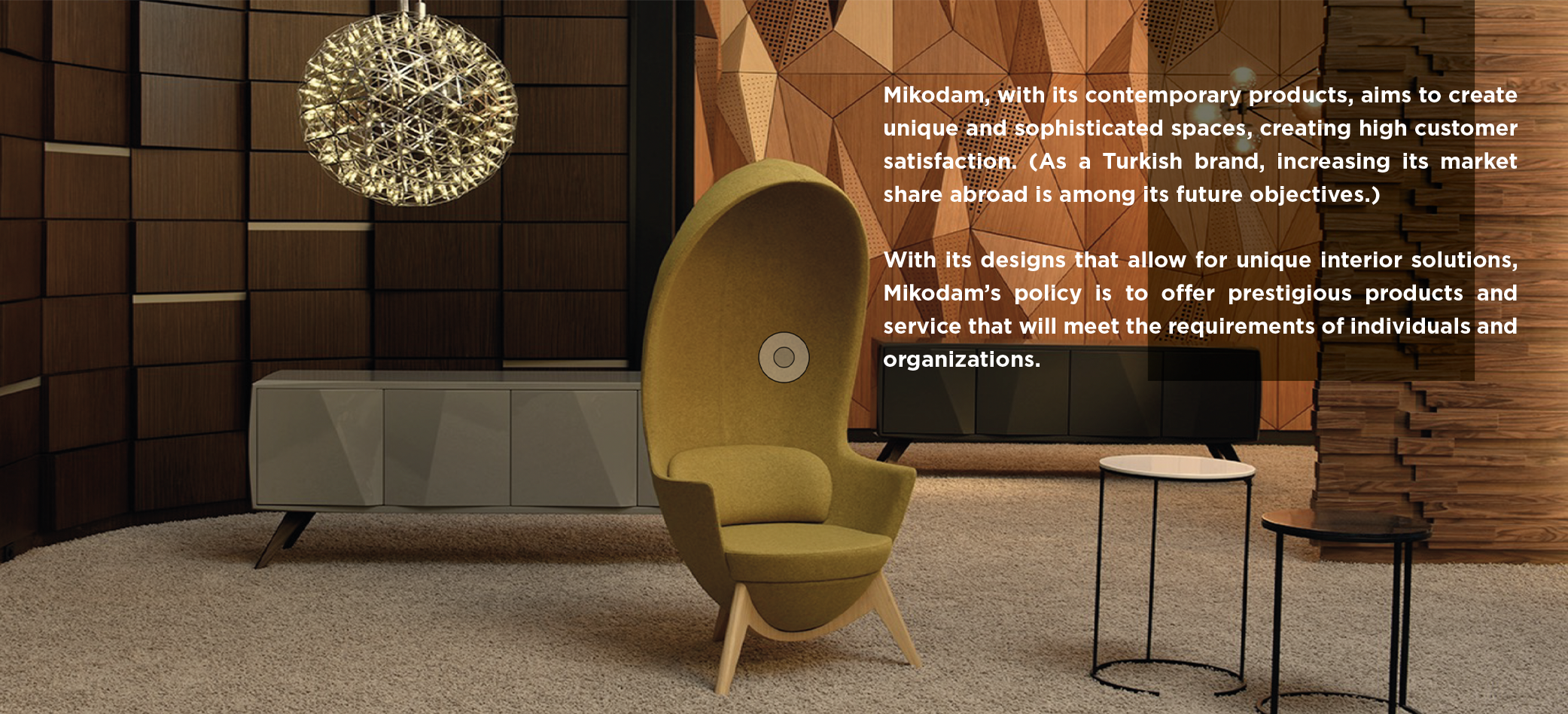

2018-19 TURKISH AIRLINES LOUNGES ISTANBUL AIRPORT
IKOOR / Mikodam collaborated with London based Softroom for the Turkish Airlines Lounges in Istanbul Airport, manufacturing and installing the Flow Wall, which is over a kilometer-long timber structure, making it one of the longest parametric interior forms in the world. The oak wall flows through six lounges, spread over an area of 19 000 square meters, unifying them.
The Flow Wall was produced with Mikodam’s special production technique a continuation of Mikodam’s parametric panel line HAZA. Mikodam only undertakes unique and special contracted projects that are need in need of custom solutions, their parametric lines being the perfect solution for such projects.
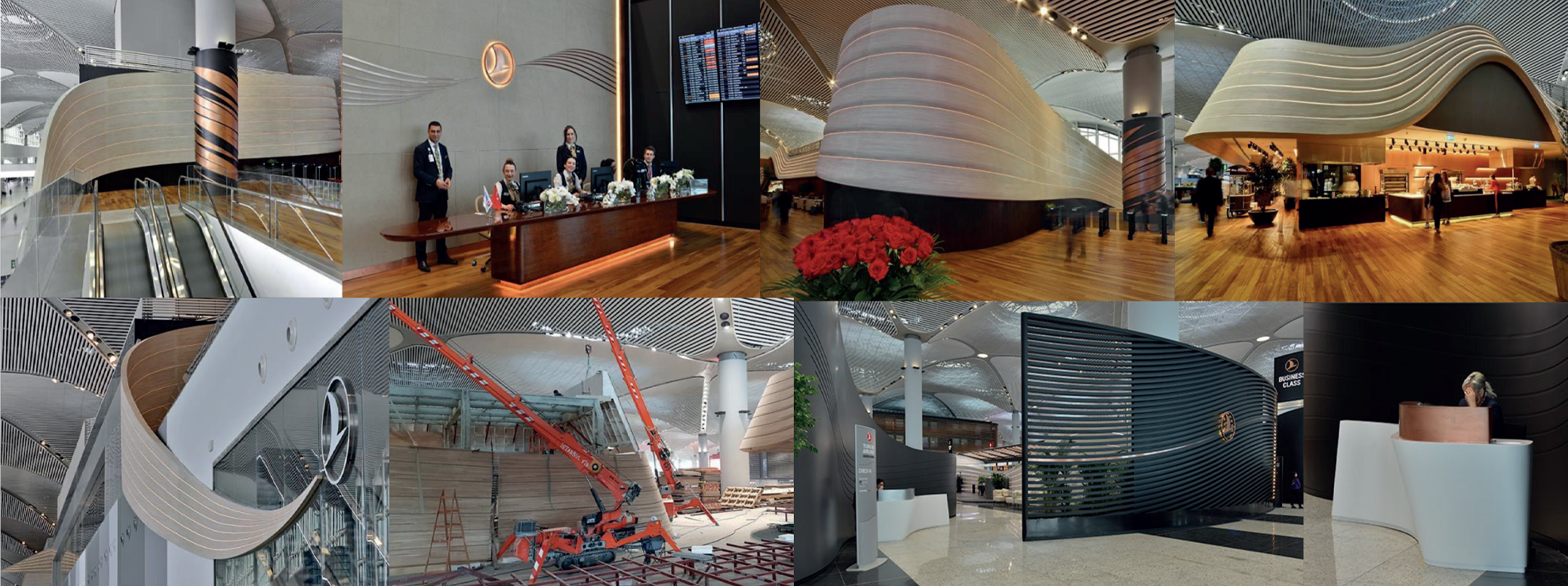
IKOOR undertakes the productions for Mikodam while continuing to manufacture contracted productions.

For Melih, the ultimate goal is to increase the quality of living.
Design is a search for a better future and an improved present. The quality of living is highly interlinked with the development of society and a better future. Art is pure yet complex; its quality rises from this complexity that combines many aspects to create a whole. Quality can only be reached through improving many different components of a product. Design means to create complex objects that reach for a greater aim than simple tasks. It deals with the issues of taste, quality and function. Melih has always sought what makes a space, an interior, an object high quality; how it could reach its full potential, and how could one reach complex compositions that come with ease, pleasing the aesthetic appetite. Melih’s designs combine a deep-rooted knowledge of traditional design with a forward looking attitude in modern design. Nourished with technology and innovations, they are conscious and sustainable. Today’s world cannot survive without education and research; we all need to support it to create individuals with values that care for the earth and the future, investing in both for continuous development. Melih’s stand in business is formed with such values and he always acknowledges the value of education and research, wanting to contribute in the ways he can. He has a devotion and aspiration towards design, understanding its intricate nature; in his quest for an improved way of living he also seeks to be part of an intellectual community where they share the same point of view and a passion for design.
©2025 Mikodam.com - All Rights Reserved - Privacy & Policy - Terms of Use


